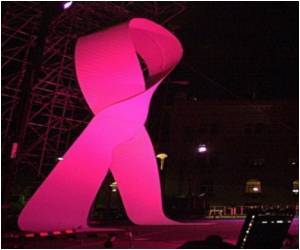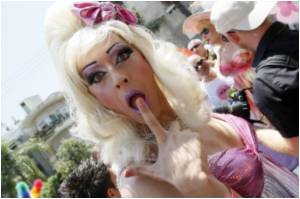In Nigeria's sprawling economic capital, the curb above a open sewer works just fine though a comfortable salon may be the ideal place to have a manicure-pedicure.

Privately tailored suits delivered to your home or office are a luxury reserved for the wealthy in some cultures, but in Lagos, many in the middle class are also in regular contact with their personal clothier.
And, while paying for your toe and fingernails to be soaked, scrubbed, trimmed and moisturised is considered a luxury in some parts of the world, in Lagos, "it's for everybody," said Bashir Haruna, 32, a groom at a polo club who also hauls boxes at an appliance store for extra cash.
During a recent evening rush-hour, Haruna squatted on the dusty sidewalk of the chaotic commercial street where he works, with the scent of sewage wafting up from below, while his preferred nail-care specialist tended to his feet and hands.
"Indian oil to make it soft," he said, as manicurist Mustapha Abdulrahaman rubbed lotion on his feet, part of the $0.37 (0.24 euro) treatment.
The informal nail care sector in Lagos is dominated by people from the northern, mainly Muslim, Hausa ethnic group, like Abdulrahaman.
Advertisement
The 30-year-old Abdulrahaman explained that he has been travelling around Nigeria, Africa's most populous country, for the last 12 years, with his collection of nail clippers bundled in a handkerchief, visiting regular customers in need of a trim.
His decades of experience contrasts with rookie 16-year-old Kabiru Garba, another northerner from Katsina state, who was sent down to Lagos alone by his family last year.
He rents a bed on the mainland, where the bulk of the city's population lives, takes a bus every morning to the wealthier island neighbourhood of Ikoyi and then begins walking the streets.
He clicks two small pieces of metal together as he moves, an audible calling card to alert potential customers that he is approaching.
Some of his most loyal patrons include the private drivers parked outside the island's office buildings and the dock workers at the Lagos Boat Club, where membership is restricted to the ultra-elite.
Abdulrahaman said he regularly does 35 manicures and pedicures each day, while Garba explained that he tops out at roughly 16, putting the daily income he earns in sometimes oppressive heat at about $4.00.
"I'm used to being tired," said Garba, with a poorly fitting red baseball cap worn skewed to the right side of his head.
A number of customers said they had no problem whatsoever with sitting for a pedicure on a tattered bench next a parking lot, or above a sewer filling up with waste.
'Captain' Lucky Paul of the boat club, 52, said of trimming his nails at home: "I used to...but sometimes my (clippers) go missing."
Haruna, the polo club worker, said there are times when he has been forced to cut nails, although, he insisted, he does not trim his own.
"I do it for my girlfriend," he said. "Sometimes I pay for somebody else to do it for her, but she likes it more for me to do it."
Source-AFP











